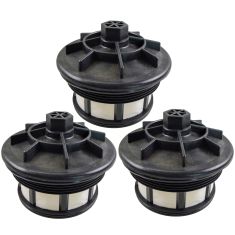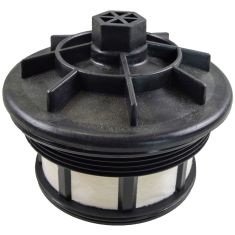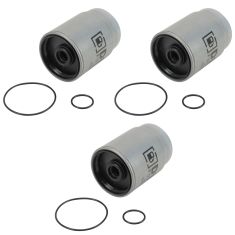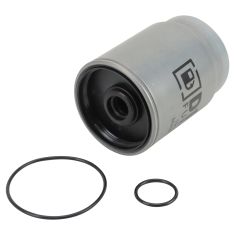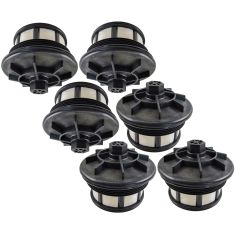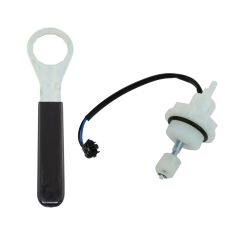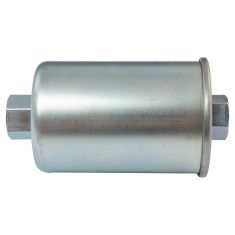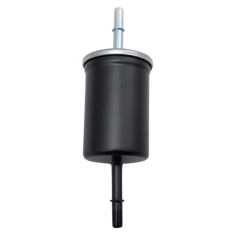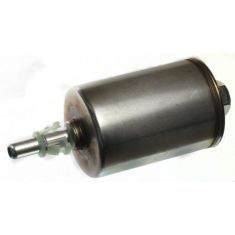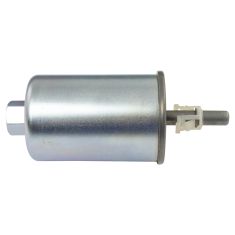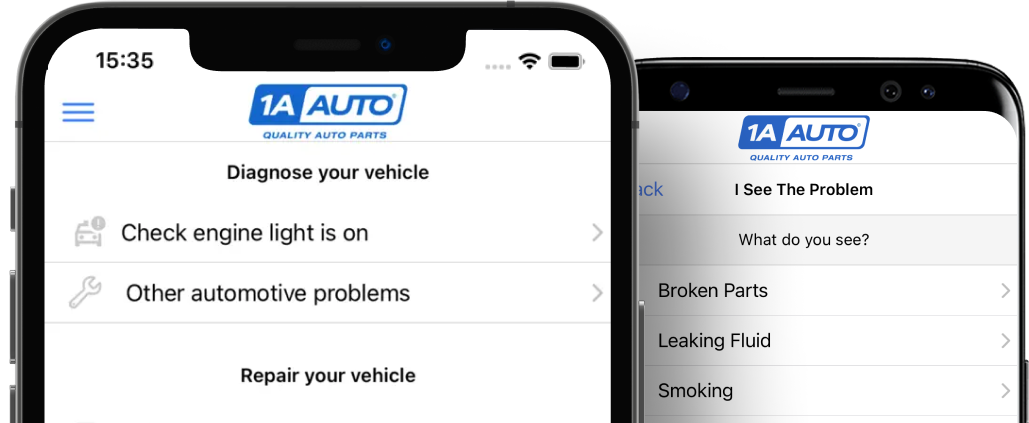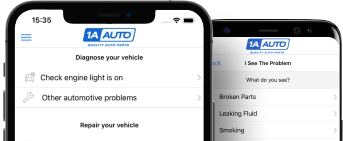Fuel Filter
-
-
- Air Deflectors & Valance Panels
- Battery Trays & Related
- Body Panels
- Bumpers & Related - Front & Rear
- Convertible Tops, Soft Tops, & Parts
- Decal & Stripe Kits
- Emblems & Nameplates
- Engine Compartment Trim
- Frame Parts & Bushings
- Fuel Door Parts
- Fuel Tank Filler Neck
- Grille
- Header Panel
- Hood & Hatch Lift Supports
- Hood Latch & Catch Brackets
- Hood Release Cable
- Jack Pads
- Radiator Supports
- Rust Repair Panels
- Splash Shields & Fender Liners
- Tailgate Cables
- Tailgate Hinges & Related
- Weatherstripping
-
- Car Covers
- Exterior Lighting
- Exterior Parts & Accessories
- Exterior Safety & Security
- Exterior Storage
- Fender Flares
- License Plate Brackets & Frames
- Mud Flaps & Splash Guards
- Nerf Bars, Side Steps, Running Boards
- Radio Antenna
- Rain Deflectors
- Roll Bars, Light Bars, & Related
- Roof Rack
- Skid Plates
- Spare Tire Carriers & Related
- Spare Tire Covers
- Tire Care
- Tonneau Covers
- Tow Hooks & D-Shackles
- Towing Accessories
- Trailer Hitch & Components
-
- Accelerator Pedal Pad
- Auto Carpet
- Brake Pedal Pad
- Clutch Pedal Pad
- Console Parts
- Dash Pad Cover
- Dash Vents
- Floor Mats & Liners
- Horns & Horn Parts
- Interior Parts & Accessories
- Mirror - Interior Rear View
- Seat Cover and Sets
- Seat Heater Kits
- Seat Parts and Accessories
- Sun Visors & Related
- Trunk & Cargo Parts
-
- Accelerator Pedals & Sensors
- Alarms, Control Modules, & Remote Start
- Cruise Control Switch & Lever
- Electrical Parts
- Hazard Switch
- Ignition Key Lock Cylinder
- Ignition Switch
- Keyless Entry Remote & Related
- Neutral Safety Switch
- Parking Assist Cameras & Monitors
- Power Mirror Switch
- Power Seat Switches
- Power Window Switch
- Radio, Navigation, Entertainment
- Reverse Light Switch
- Trunk Release & Lock Solenoids
- Turn Signal Switches and Levers
- Windshield Wiper Switch
-
- Idler Arm
- Pitman Arm
- Power Steering Hoses
- Power Steering Oil Cooler
- Power Steering Pressure Sensor
- Power Steering Pump
- Power Steering Pump Cooling Fan
- Power Steering Pump Pulley
- Power Steering Pump Reservoir
- Steering Dampers
- Steering Knuckles and Spindles
- Steering Rack and Gear Boxes
- Steering Shafts & Couplers
- Steering Wheels & Column Parts
- Tie Rods & Adjusting Sleeves
-
-
-
-
-
-
72
8
10
10
-
Notify When Available$82.95Save 27%List $112.95 Save $30.00Brand: DIY Solutions - FLT00019$82.95Save 27%List $112.95 Save $30.00
-
Notify When Available$47.95Save 21%List $60.95 Save $13.00Brand: DIY Solutions - FLT00044$47.95Save 21%List $60.95 Save $13.00
-
Notify When Available
Replaces Chevrolet GMC Fuel Filter 3 Piece Set DIY Solutions FLT00015
Brand: DIY Solutions - FLT00015$82.95Save 23%List $107.95 Save $25.00Brand: DIY Solutions - FLT00015$82.95Save 23%List $107.95 Save $25.00 -
Notify When Available$44.95Save 30%List $63.95 Save $19.00Brand: DIY Solutions - FLT00045$44.95Save 30%List $63.95 Save $19.00
-
Notify When Available$142.95Save 28%List $197.95 Save $55.00Brand: DIY Solutions - FLT00014$142.95Save 28%List $197.95 Save $55.00
-
Notify When Available$45.45Save 35%List $69.95 Save $24.50Brand: DIY Solutions - FLT00178$45.45Save 35%List $69.95 Save $24.50
-
Notify When Available$21.45Save 10%List $23.95 Save $2.50
Replaces In Line Fuel Filter ECOGARD XF33144
Brand: ECOGARD - XF33144$21.45Save 10%List $23.95 Save $2.50 -
Notify When Available$21.45Save 10%List $23.95 Save $2.50Brand: ECOGARD - XF65277$21.45Save 10%List $23.95 Save $2.50
-
Notify When Available$29.95Save 27%List $40.95 Save $11.00
-
Notify When Available$21.45Save 14%List $24.95 Save $3.50Brand: ECOGARD - XF55215$21.45Save 14%List $24.95 Save $3.50
loading...
Choose the Make of Your Vehicle
